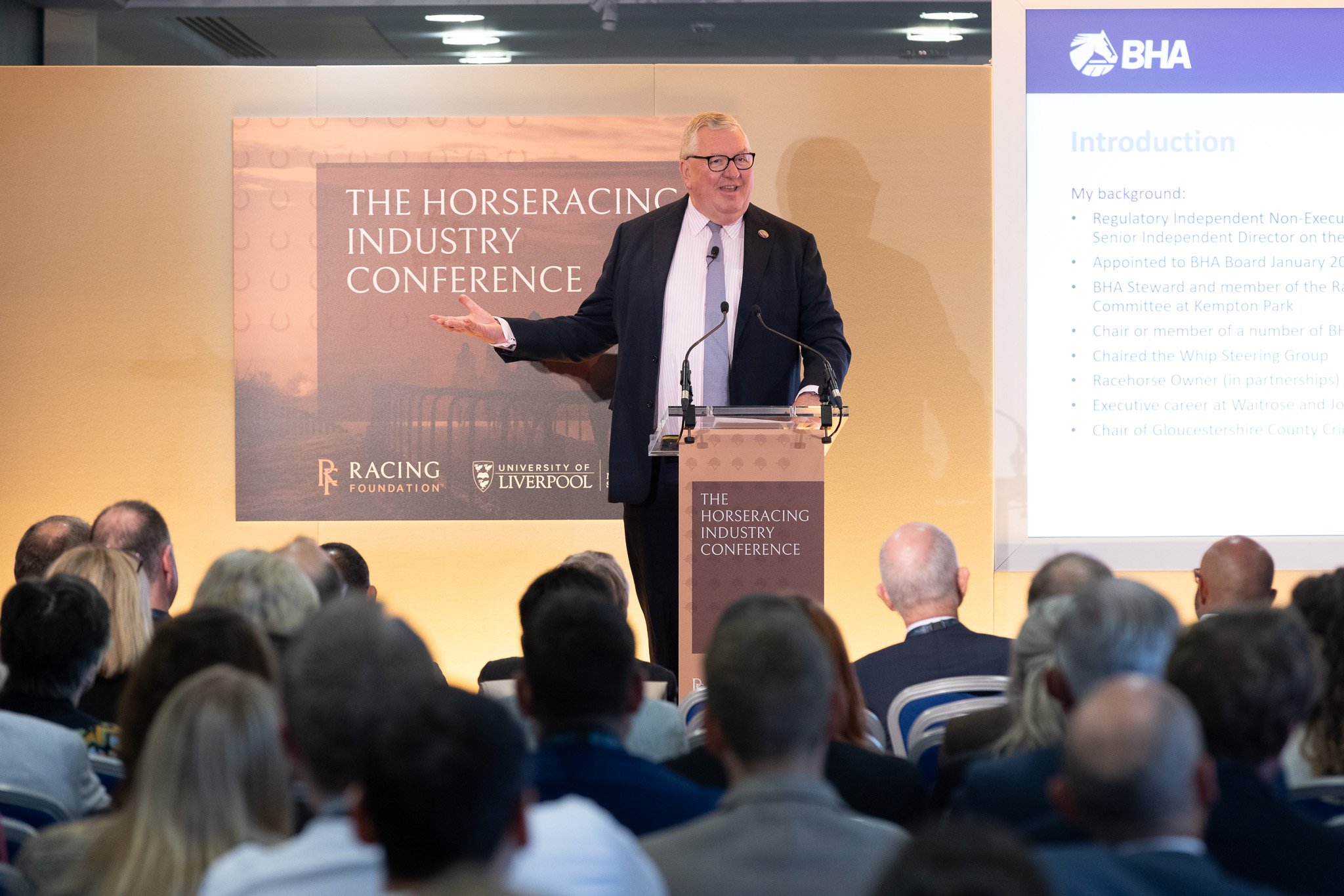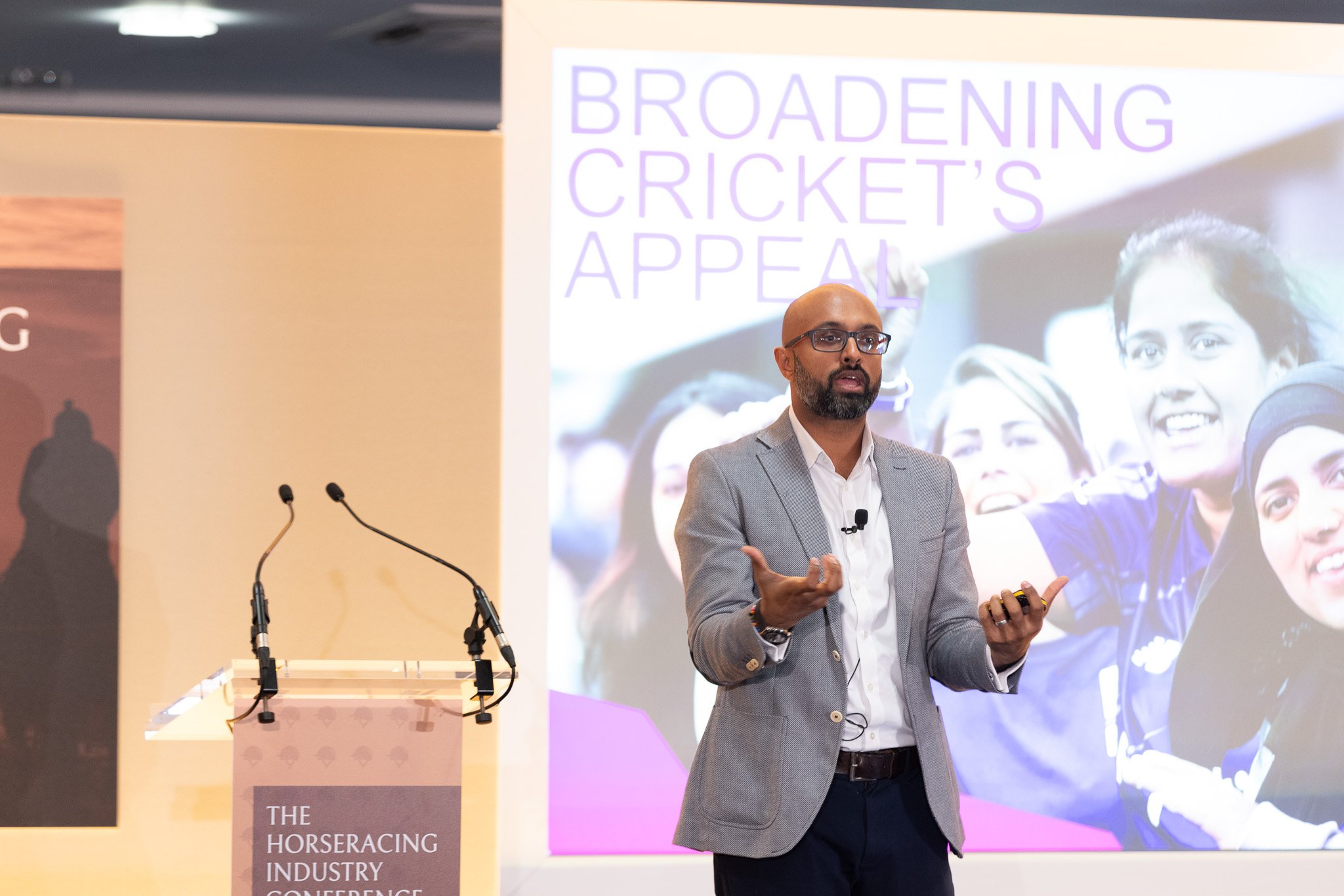What we learnt at the first carbon-neutral horseracing industry conference
/Article by Rhianydd Lee-Jones
Delegates from across the racing industry attended the first carbon-neutral Horseracing Industry Conference at York Racecourse on Tuesday, October 24.
Over 250 delegates from across the industry registered for the event: from racecourse representatives to racehorse trainers, funders to charities and racing schools to suppliers. The cross-section of British racing and the wider sporting landscape attendees engaged with keynote talks from specialists and experts from within and outside of the sport.
When developing the agenda for this year’s conference, the Racing Foundation and University of Liverpool Management School did so with the belief that in order to discuss the future of the sport, it was imperative to engage younger audiences and make their voices heard. Each agenda item featured a ‘next generation panellist’ who represented the next generation of racing's fan base and workforce. Complimentary delegate tickets were offered to under 25-year-olds to encourage engagement and debate with the challenges and opportunities discussed at the conference.
Environmental sustainability was embedded into the conference this year not only through its inclusion on the agenda, but by its sustainable practices. The conference used reusable signage, encouraged delegates to travel by train, collected carbon data and used a digital-only brochure. Lanyards made from recycled bottles replaced traditional plastic name badges. A lunch using produce from Yorkshire was served as the Racing Foundation and University of Liverpool Management School addressed all aspects of environmental impact in delivering the event. The carbon used will be offset using an approved scheme.
Senior Independent Director and Chair of the Commercial Committee David Jones kicked off the conference with the keynote address, offering a commercial view of the forthcoming industry strategy and stressing the importance of significant innovation through collaboration.
The Racing Product agenda item commenced with Racing League founder Jeremy Wray discussing the importance of trying new ideas within the sport of racing and calling for more data and more technology to capture the next generation of racing fans. He said that while we haven’t managed to engage millennials or Gen Z with the sport yet, there is hope and time to win them back. Wray cited ITV’s new six-part primetime docuseries, that focuses on jump racing, as crucial to address racing’s “massive existential crisis.”
Vikram Banerjee is Director of Business Operations at the England and Wales Cricket Board. Instrumental in the delivery of cricket’s modernised format ‘The Hundred’, Vikram talked about breaking down perceptions of cricket as elitist and how the ECB broadened cricket’s appeal and engaged families with young children.
‘Equine Breeding: Past, Present and Future’ was the first session after lunch. Vice-Chair and Veterinary Chair of the International Thoroughbred Breeders’ Federation Dr Des Leadon delivered an educational keynote talk on the history of thoroughbred breeding and the integrity of the breed. In keeping with the conference structure of considering the wider sporting landscape, breeding specialists James Crabtree and Fred Barrelet then explored equine breeding techniques in the non-thoroughbred, reflecting on outcomes in other equestrian disciplines.
Ruth Dancer is the Director of White Griffin who delivered the racing industry’s sustainability assessment results and recommendations in 2022. She delivered a keynote talk at this year’s conference. After giving an update and insight into best practice across various industry sectors, Dancer posed the question ‘Where are you in your journey?’ Subsequently encouraging delegates to educate themselves, get started, and talk about what they’re doing and celebrate every single sustainability win.
Football followed Dancer’s talk. Ben Fisher, Environmental Sustainability Officer of the English Football League, talked about the power of sport to engage communities in the area of environmental sustainability, its connection to social aim, and the opportunity to use sustainability to leverage fan buy-in.
The final item of the day was the industry leadership panel. Its aim was to offer all delegates the opportunity to quiz racing’s decision makers in an open forum. Keynote address David Jones was joined by Claire Sheppard (Thoroughbred Breeders’ Association Chief Executive), Charlie Liverton (Chief Executive of the Racehorse Owners Association), Dale Gibson (interim CEO of the Professional Jockeys Association), Jemma Marshall (President of the National Association of Stable staff), Neil Hayward (Chair the Industry People Boar) and David Armstrong (Racecourse Association Chief Executive) joined Rishi Persad onstage to answer questions from the audience. The discussion included data, training and retaining the industry’s workforce and community engagement for racecourses. This session, alongside other select keynote talks, is available to watch online at https://www.racingfoundation.co.uk/conference-2023





